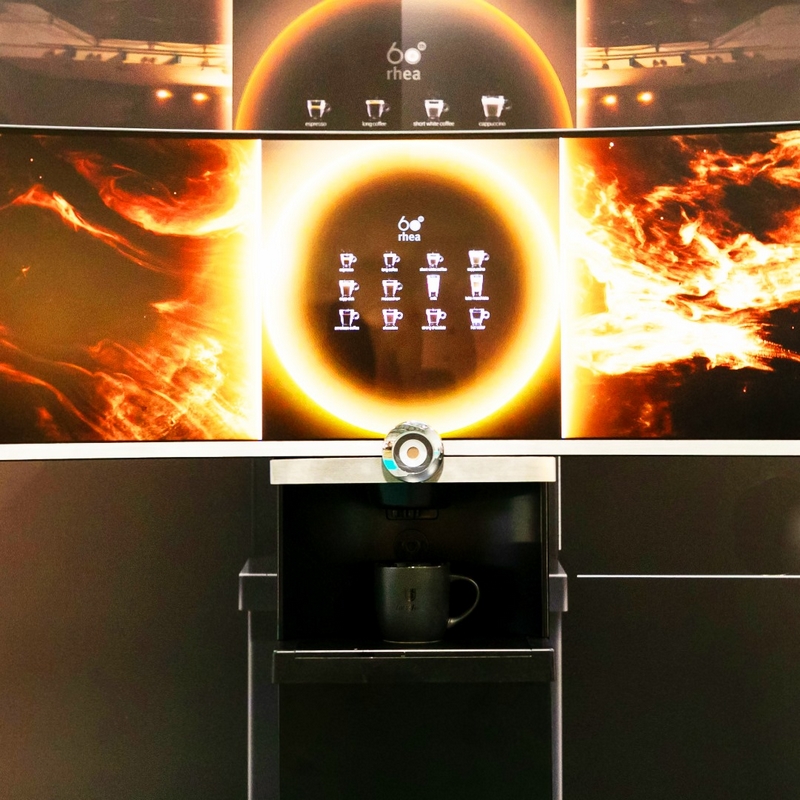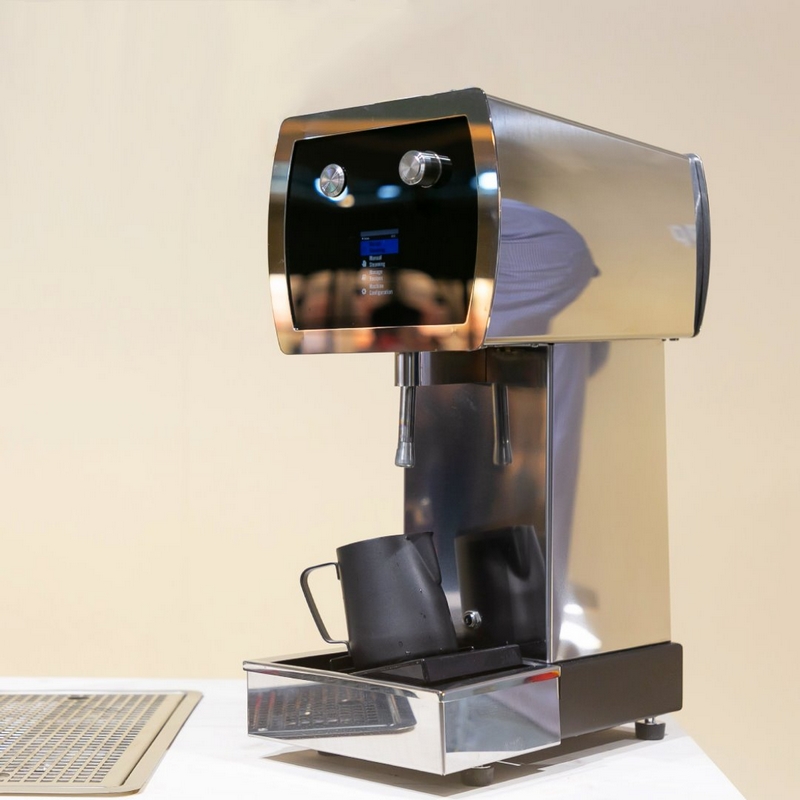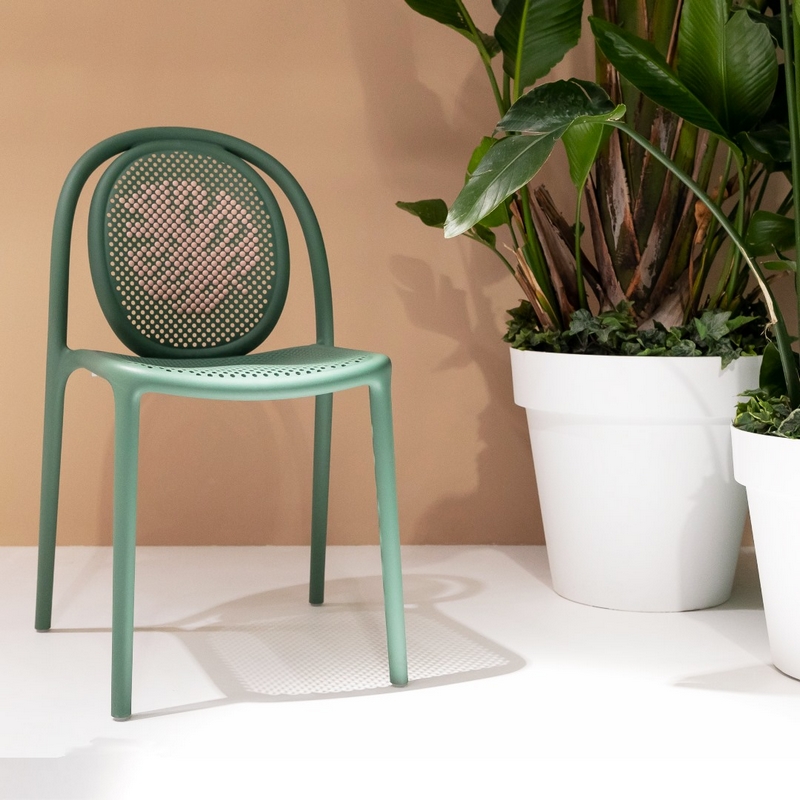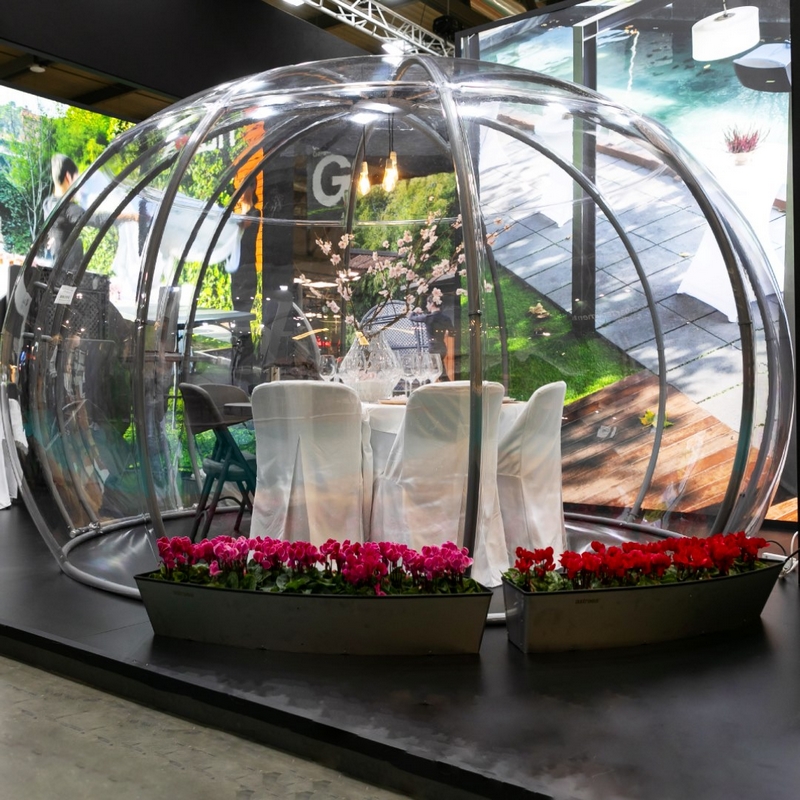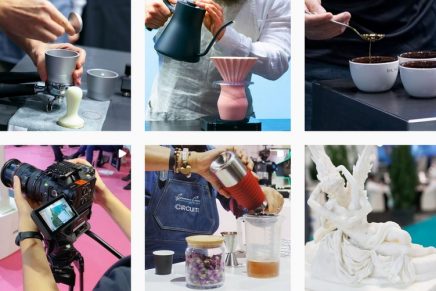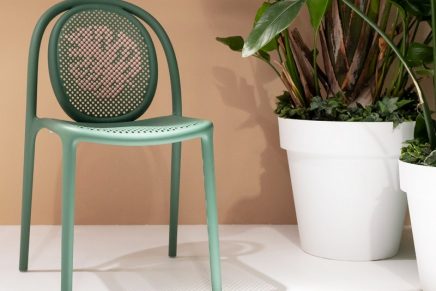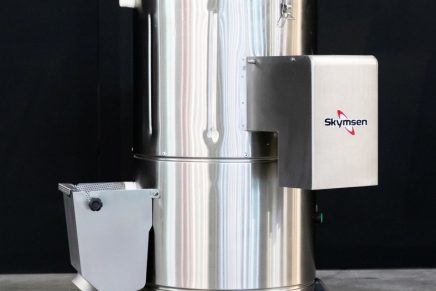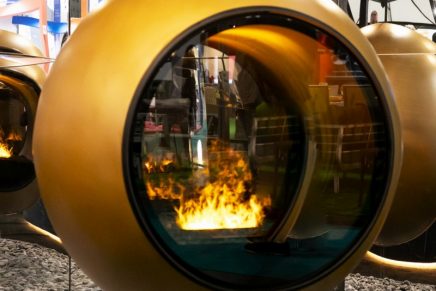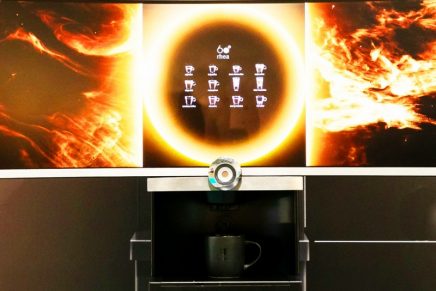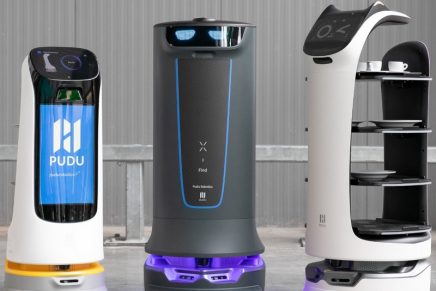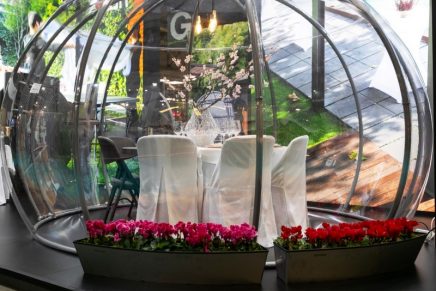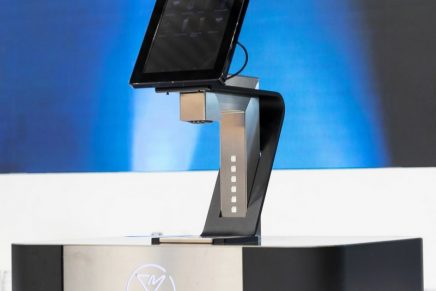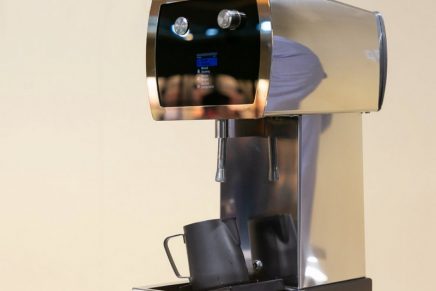Having established continual exchanges with Ho.Re.Ca. leaders in Italy and abroad, 2021 HostMilano trade fair, the world exhibition dedicated to the catering and hospitality sector, revealed that increasingly widespread awareness is dawning in professional catering on the importance of innovating by adopting more sustainable solutions. This results in the use of new machinery and processes with a strong focus on reducing energy consumption, waste, bulky packaging and plastic.
Attention to the green new wave is perhaps one of the few positive aspects that the lockdown has left in its wake. The Ho.Re.Ca. sector by implementing the use of technology and innovation has all the potential to make a quantum leap in quality. Perhaps unsurprisingly given the current health situation, the quantum leap must be primarily in the area of workplace safety and comfort. Sanitation has become a way to protect everyone’s health and not just an obligation. Some businesses in the sector have begun questioning the real possibilities of contributing, with their experience, to solve the problem of professional sanitation within their respective areas.
A practical example comes from Minerva Omega Group that took up the challenge and channelled part of its energies to designing and industrialising a new series of smart sanitisers based on the combined, simultaneous action of UV-C rays and ozone to reduce the microbial load on objects placed within its perimeter to estimated, certified and safe limits.
Again with hygiene and safety in mind, new technology has also been applied to the vending machine sector. After the pandemic, many consumers were understandably reluctant to touch any surface, including keypads to select their favourite drink or snack. The problem was solved by a Canadian project that devised a touchless solution allowing users to select their product when sending a cashless payment to the device. The problem of contact with the display to select the desired drink remains topical also for automatic coffee machines, especially in environments frequented by several people, such as offices and reception areas.
Technology comes to the rescue, this time by exploiting the potential of a smartphone. De Jong DUKE developed an app with which users can scan a QR code to dialogue with the coffee machine and order simply with a click. From the freezer world dedicated to the hospitality sector comes the first assistant robot designed to deliver ice cubes in hotels directly to the room. ITV Ice Makers developed Steward, similar to a cleaning robot, that delivers ice from the machine in the hallway to the customer’s room quickly, quietly and safely.
The winning drivers are hygiene, safety, and intelligent technology
Perhaps unsurprisingly given the current health situation, the quantum leap must be primarily in the area of workplace safety and comfort. Sanitation has become a way to protect everyone’s health and not just an obligation. Some businesses in the sector have begun questioning the real possibilities of contributing, with their experience, to solve the problem of professional sanitation within their respective areas. A practical example comes from Minerva Omega Group that took up the challenge and channelled part of its energies to designing and industrialising a new series of smart sanitisers based on the combined, simultaneous action of UV-C rays and ozone to reduce the microbial load on objects placed within its perimeter to estimated, certified and safe limits.
Again with hygiene and safety in mind, new technology has also been applied to the vending machine sector. After the pandemic, many consumers were understandably reluctant to touch any surface, including keypads to select their favourite drink or snack. The problem was solved by a Canadian project that devised a touchless solution allowing users to select their product when sending a cashless payment to the device. The problem of contact with the display to select the desired drink remains topical also for automatic coffee machines, especially in environments frequented by several people, such as offices and reception areas.
Technology comes to the rescue, this time by exploiting the potential of a smartphone. De Jong DUKE developed an app with which users can scan a QR code to dialogue with the coffee machine and order simply with a click. From the freezer world dedicated to the hospitality sector comes the first assistant robot designed to deliver ice cubes in hotels directly to the room. ITV Ice Makers developed Steward, similar to a cleaning robot, that delivers ice from the machine in the hallway to the customer’s room quickly, quietly and safely.
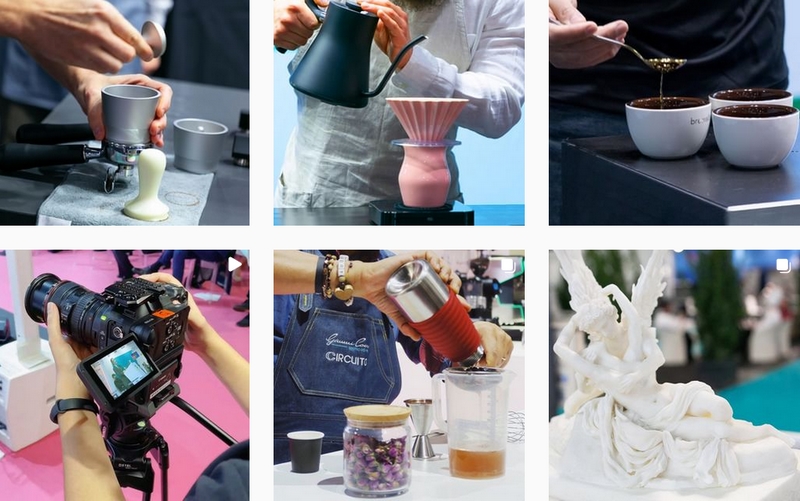
photos @2021 HostMilano trade fair/ @instagram.com/hostmilano/
Technological innovation from the kitchen to the table
The pivotal question is whether sustainability is viewed as a cost or an opportunity and what perceptions of the sector players are concerning their relationship with sustainability. Undoubtedly, there are several examples of how you can avoid unnecessary energy-wasting and how useful technology can be for savings in the daily running of a business to cut kitchen costs without sacrificing functionality or quality and all while making a significant contribution to a cleaner environment. Across the pond, the United States Environmental Protection Agency has activated the Energy Star certification to certify low energy consumption machinery and equipment used in professional kitchens. According to Rainer Zinngrebe, Principal of HKBDesigns and former Senior VP of Culinary of Marriott Luxury, the most important innovations are the ones that save energy and resources, help with running and labour costs and guarantee excellent results. “An example is Granuldisk, the dishwasher system that uses 90% less water and 95% fewer chemicals. It is compact in size, generates less steam and suitable for washing pots, pans, plates and cutlery. It is an all-round solution”. Food preservation is equally central to the economy of a catering business and if you can rely on a single, space-saving, multifunctional product, then all the better. The innovation in this area takes the form of a freezer that doubles as a refrigerator. The Danish company Elcold offers Focus V that combines these features and, with a glass lid, offers a complete view of the contents. It is ideal for safely displaying fish, seafood, fruit and vegetables and can also be used for self-service.
In kitchens, on the other hand, the aim is to be able to adjust energy consumption according to the quantities to be cooked. Steam ovens, such as those made by ALTO SHAAM, are 50% more energy-efficient than comparable products and the most advanced models consume as much as 80% less waterand can cook twice as fast as their traditional counterparts. Driven by the concept that high energy consumption is not necessary to serve high-quality food, the Italian Angelo Po has recently launched Flexiplate, a multi-functional hob split into four separate zones that can be controlled independently. To continuously improve its professional cooking equipment range and offer top-level services as wells as rugged, increasingly high-performing and efficient machines to chefs, Tecnoinox fits patented heating units in professional TAP gas-fired combination ovens to boost efficiency and reduce consumption.
Simple changes in food purchasing, storage, preparation and service practices can often lead to significant reductions in food waste. “Personally, I’m a supporter of ‘from the farm to the table’ products for their quality and sustainability”, said Christian Testa, Executive Chef at Halekulani, one of the most luxurious resorts in Hawaii.
“I use only seasonal ingredients. I experiment with traditional preservation techniques, such as grinding, fermentation or smoking, to make the most of the ingredients. I am very mindful of food storage and, above all, I educate my cooks on the importance of using all the ingredient. We serve the right portions to avoid too much waste. Any surplus we donate to local charities”.
In tune with the principles of sustainability and responsibility towards the consumer, innovations go hand in hand with respect for the environment in the hot beverage and fresh juice world as well, particularly when it comes to the surge in popularity of single-serve coffee and the issue of how to dispose of the used capsules. Diemme Caffè has chosen to contribute to reducing the ecological impact by making fully compostable capsules that can be binned together with the extracted coffee beans in the “I Viaggi di Caffè Diemme” range for large-scale retail trade. For the best sensory experience in a cup, the company has chosen a Cimbria “SEA CHROMEX” machine that implements some of the most advanced technology in the field. “The machine selects the raw coffee beans, which has already undergone several quality control operations in the laboratory, and identifies the tiniest differences in shape and colour before roasting using eight RGB micro-cameras, capable of eliminating primary and secondary defects, and infrared sensors that lower the deformity percentage to under 0%, eliminating 100% of foreign bodies”, explained Sales and Marketing Export Manager Stefano Martin. In line with this trend, Sanremo Coffee Machines Srl is also following the path of technological innovation with a view to sustainability, by adopting cutting-edge systems to reduce emissions into the atmosphere, water discharge, waste and processing waste and favour recycled materials for shipping packaging. “Having set the goal of inspiring change in our sector, we have actively involved the University of Engineering of Padua in the study of new materials, technologies and processing methods. We have also drawn up an internal project that aims to provide coffee shop owners, baristas and the end consumer with tools to help them make efficient decisions to reduce their environmental impact”.
The world of juice extractors, increasingly more popular in hotels at breakfast time, is also turning green. Santos has recently launched the first professional juice extractor designed for use in front of customers called the Nutrisantos # 65. Suitable for intensive use, it is protected by two technical patents and stands out for its ergonomic design and reliability. “We wanted to develop an eco-driven device that respects the environment optimising the choice and weight of materials to reduce the impact on the environment,” declared Sarah Jouan, Communication & Export Key Accounts Manager. “The variable speed feature allows for better performance of our product and lower energy consumption.”
Stricter hygiene and safety protocols have also led to innovation in hospitality furniture.
Chris Tucker, International President of the Toronto-based NEWH Inc., active in the world of hospitality furniture, pointed out how Canadian designers have developed an innovation applied to fabrics. “Alta” is the first engineered textile technology that binds permanently to the fabric making it stain-resistant, water-repellent and easy to clean and sanitise. Continual research is also intertwined in the lifestyle sector with the need for sustainable manufacturing. Calligaris set the goal of introducing innovative materials and solutions in the new collections every year.
The company is already making articles with 100% post-industrial recycled plastic, chairs with recycled PET covers and armchairs and sofas upholstered with fabrics made from recycled materials. Sustainability, transparency and awareness are the extras of the Corporate Responsibility policy that drive the entire industrial growth of Sambonet Paderno Industrie, Rosenthal and the other subsidiaries of the Group. “We use only renewable, clean energy sources, such as methane and electricity, and resources to be returned intact to the environment, such as the groundwater used in our plant, constantly analysed and monitored by our in-house laboratory”, declared Barbara Cincotto Ho.Re.Ca. Sales of the Arcturus Group. “We have been publishing a yearly Sustainability Report illustrating our performance through numbers and objectives achieved since 2012.”
More value to the green economy: plastic-free from the farm to the table
There is no shortage of excellent operations aimed at reducing the use of plastic widely employed for hygienic and sanitary reasons, especially in disposable products. In the luxury world, attention to sustainability has led to tangible results. An example is a project promoted by the U.S. hotel supplier Tomson Hospitality in partnership with water purification machine manufacturer Vero Water for the catering industry to reduce the use of plastic bottles on luxury cruise ships. The collaboration has made it possible to eliminate three million plastic bottles on-board in a single year. For instance, Virgin Voyages, the Virgin branded cruise liner, is entirely plastic-free thanks to the contribution of the Italian company Abert that developed table products and dispensers that do not contain plastic.
The “from the farm to the table” cookery movement is also part of this approach using zero-mile products whenever possible.
Choosing the ingredients can make the difference, turning to local producers and, in the case of fruit and vegetables, returning any straps and trimmings to make natural fertilizer. Sustainability often goes hand in hand with savings and zero-waste is the primary challenge for restaurants. Chef Doug McMaster of the London Silo, for instance, serves only a fixed menu.
The plates are formed from plastic bags and tables from reconstituted food packaging. Instead, the poppy seed paper used at the Nolla restaurant in Helsinki is biodegradable and can be planted in gardens after use. Actually, many examples of best practices come from the Middle East. The Jumeirah Group has embraced a number of initiatives in its hotels and restaurants, including a ban on single-use plastic. Some hotels create menus with at least five dishes made exclusively with locally grown ingredients, that is important considering that more than 80% of the food eaten in the UAE is imported. Chef Uwe Micheel, President of the Emirates Culinary Guild, also emphasised how the new procedures required during the health emergency have had a positive impact with “the care and attention for all aspects of a dish on the rise, optimising portion size and reducing food waste” and a view to sustainability on the plate as well as on environmental level. This has a twofold advantage. By calibrating shopping for ingredients better and proposing a shorter menu with seasonal products, restaurateurs help local growers and avoid a surplus of unused food which is a cost without gain.
App in progress, innovation at the service of the catering industry
Digital menus, real-time food delivery and online booking in a few simple steps. Increasingly more user-friendly apps and software have been perfected during the lockdown and are quietly becoming part of the daily life of restaurateurs and consumers expanding from major cities, where platform-based booking services were already in use, to smaller towns. The apps have evolved into complex but very effective management programs that are fast to use. There is an app for managing the growing number of online order requests and one for digitising the menu to promote home delivery orders and allow quick browsing by customers before they enter the actual restaurant.
The advantages are multifold. Delivery services allowed many businesses to stay open and at the same time has created a new habit for customers who now have apps helping them book from over 18,000 restaurants worldwide, 5,000 of which in Italy.

